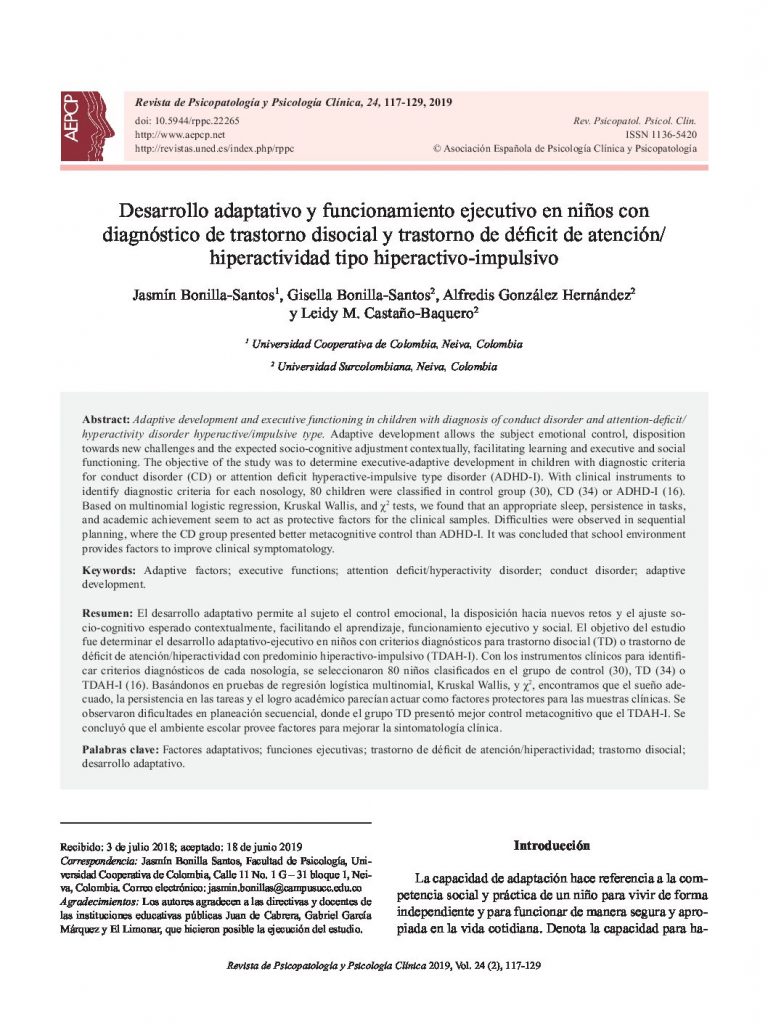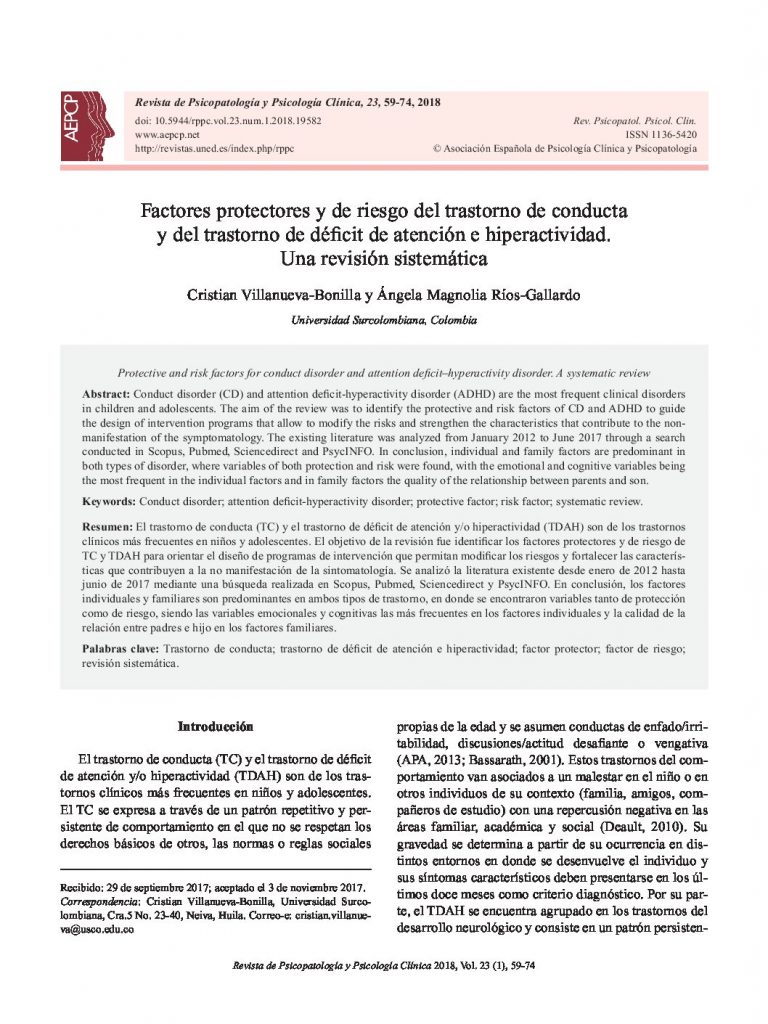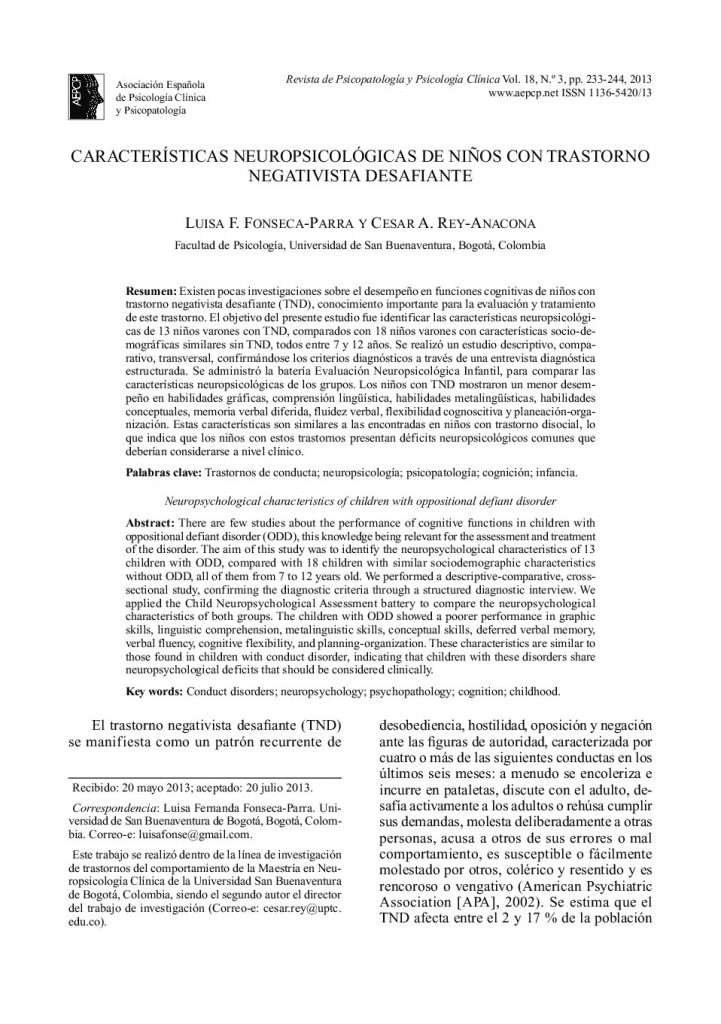Desarrollo adaptativo y funcionamiento ejecutivo en niños con diagnóstico de trastorno disocial y trastorno de déficit de atención/ hiperactividad tipo hiperactivo-impulsivo.

- Análisis factorial confirmatorio y propiedades psicométricas de la Escala de Desesperanza de Beck en estudiantes en contextos de pobreza en México.
- Quality of life in people with spinal cordinjury.
- Efectos del programa CIPRES sobre el riesgo de suicidio en adolescentes.
- Predicción de la accidentabilidad en función de los comportamientos arriesgados y agresivos al volante: Diferencias según la edad y el género.
- Apoyo social percibido y factores sociodemográficos en relación con los síntomas de ansiedad, depresión y estrés en universitarios chilenos.
- Desarrollo adaptativo y funcionamiento ejecutivo en niños con diagnóstico de trastorno disocial y trastorno de déficit de atención/ hiperactividad tipo hiperactivo-impulsivo.
Adaptive development allows the subject emotional control, disposition towards new challenges and the expected socio-cognitive adjustment contextually, facilitating learning and executive and social functioning. The objective of the study was to determine executive-adaptive development in children with diagnostic criteria or conduct disorder (CD) or attention deficit hyperactive-impulsive type disorder (ADHD-I). With clinical instruments to identify diagnostic criteria for each nosology, 80 children were classified in control group (30), CD (34) or ADHD-I (16). Based on multinomial logistic regression, Kruskal Wallis, and χ2 tests, we found that an appropriate sleep, persistence in tasks, and academic achievement seem to act as protective factors for the clinical samples. Difficulties were observed in sequential planning, where the CD group presented better metacognitive control than ADHD-I. It was concluded that school environment provides factors to improve clinical symptomatology.
El desarrollo adaptativo permite al sujeto el control emocional, la disposición hacia nuevos retos y el ajuste socio-cognitivo esperado contextualmente, facilitando el aprendizaje, funcionamiento ejecutivo y social. El objetivo del estudio fue determinar el desarrollo adaptativo-ejecutivo en niños con criterios diagnósticos para trastorno disocial (TD) o trastorno de déficit de atención/hiperactividad con predominio hiperactivo-impulsivo (TDAH-I). Con los instrumentos clínicos para identificar criterios diagnósticos de cada nosología, se seleccionaron 80 niños clasificados en el grupo de control (30), TD (34) o TDAH-I (16). Basándonos en pruebas de regresión logística multinomial, Kruskal Wallis, y χ2, encontramos que el sueño adecuado, la persistencia en las tareas y el logro académico parecían actuar como factores protectores para las muestras clínicas. Se observaron dificultades en planeación secuencial, donde el grupo TD presentó mejor control metacognitivo que el TDAH-I. Se concluyó que el ambiente escolar provee factores para mejorar la sintomatología clínica.





